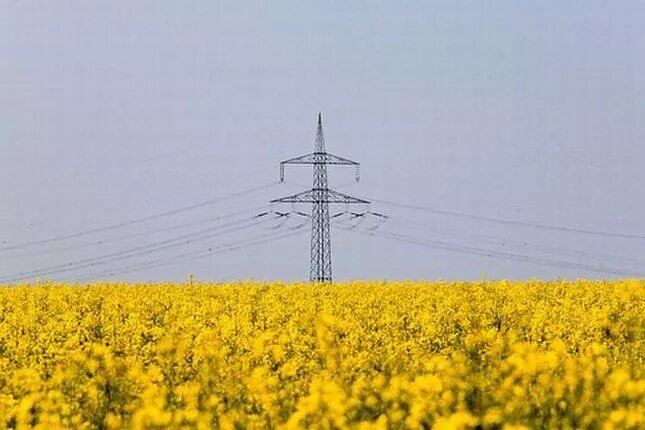
The situation in Greece has brought the shortcomings of an unsustainable overall economic model for Europe sharply into focus: at its heart lies a dependency on fossil sources of energy, the vast majority of which need to be imported. Europe’s annual energy debt to the King of Saudi Arabia or Mr Putin runs into hundreds of billions of euros. If we were to include the costs of the consequential damage and the climate crisis, this bill would be considerably higher, most likely sailing past the billions mark.
This economic bloodletting for oil, gas and coal – which drives the engine of an economy that is outdated because it is unsustainable – hits a country such as Greece that is not the world’s leading exporter of processed products at its core. Greece is hugely dependent on energy imports. 64% of its energy requirements are imported (compare this to the EU average of 46%). For years, the billions spent on energy imports have pushed Greece’s foreign trade balance into the red, while indirectly sending national debt soaring.
Without the oil bill, Greece’s import-export figures would be nearly balanced. The fact that the Greek economy slowly began to find its feet again in 2014 has far less to do with Angela Merkel’s austerity policies, and is instead likely down to significantly lower oil prices. It doesn’t need to be spelled out what will happen to the Greek economy even under a stable political framework if the oil price starts to rise substantially – as we can assume will happen, at least in the midterm.
Greece is extremely dependent on oil imports. 54% of energy requirements are covered by oil alone (in Germany, this share is 36%). The oil is not only bound for the transport sector, but is converted into electricity in relevant amounts. In particular, the many Greek islands obtain their electricity primarily from inefficient and expensive diesel generators. It cost the country 700 million euros to subsidise the electricity price in those areas. Among other factors, this led to the price of energy in Greece rising by 60% between 2008 and 2013 alone. Lignite covers the majority of energy requirements on the mainland, which is why in the north of the country – as in Germany – huge swathes of land are dug up and people are forced to move. Natural gas, which also has to be imported at great cost, plays a growing role in meeting energy requirements.
There is an obvious way to kick this oil and gas habit: with 300 days’ sunshine a year in many areas and stable wind conditions, Greece is predestined to make use of renewable sources of energy. The country was at least able to increase its share of electricity generated by renewables during the crisis: in 2010 the share of wind and sun in electricity generation was virtually nil. Today, it is around 12%. On top of this comes around 12% hydro power, which has been used for some time.
Indeed, a feed-in tariff – created in line with the German EEG model – did trigger a boom, which ended abruptly in 2013/2014, however, when the government retroactively lowered rates. Unfortunately, for a long time overblown solar projects and plans for power lines to Cyprus and Israel, as well as hopes of cheap gas from Putin and complete pipe dreams of huge oil and gas reserves off the coast have all distracted attention from the real challenges: if Greece wants to reduce its dependency on imports and thus the immense costs for fossil fuels, a decentralised transformation of the energy sector towards renewables and energy efficiency is the only viable way. Due to better natural conditions, solar and wind power could be generated for far less than the 10 cents/kWh that currently applies in Germany.
The recently concluded agreements on new financial aid are a step in the right direction for the energy sector. Expansion of renewables and increasing energy efficiency play a central role here. The goal of reducing the dominant market position of the former monopoly and state-owned company is the right one. Opportunities are offered for new small and medium-sized players if it is no longer permitted for one company to generate or feed in more than 50% of electricity consumed in Greece. Yet this can only be the start. Building on the latest agreements, Greece needs a Green New Deal for renewables and energy-efficiency in cooperation with the European institutions and the EU. This offers the country a real opportunity to pull out of the downward spiral and start a forward-looking investment, infrastructure and innovation project, in which the huge import bill for oil and gas is reduced and renewable sources of energy create jobs and added value for the country.
Ending dependency on fossil sources of energy and all the negative consequences they entail in terms of climate, environment, health and economy is a challenge and a huge opportunity for Greece and for Europe. It allows Greece to change from a crisis-plagued state to a model one, as fossil dependency is essentially just as problematic in the 27 other EU states as it is in Greece.